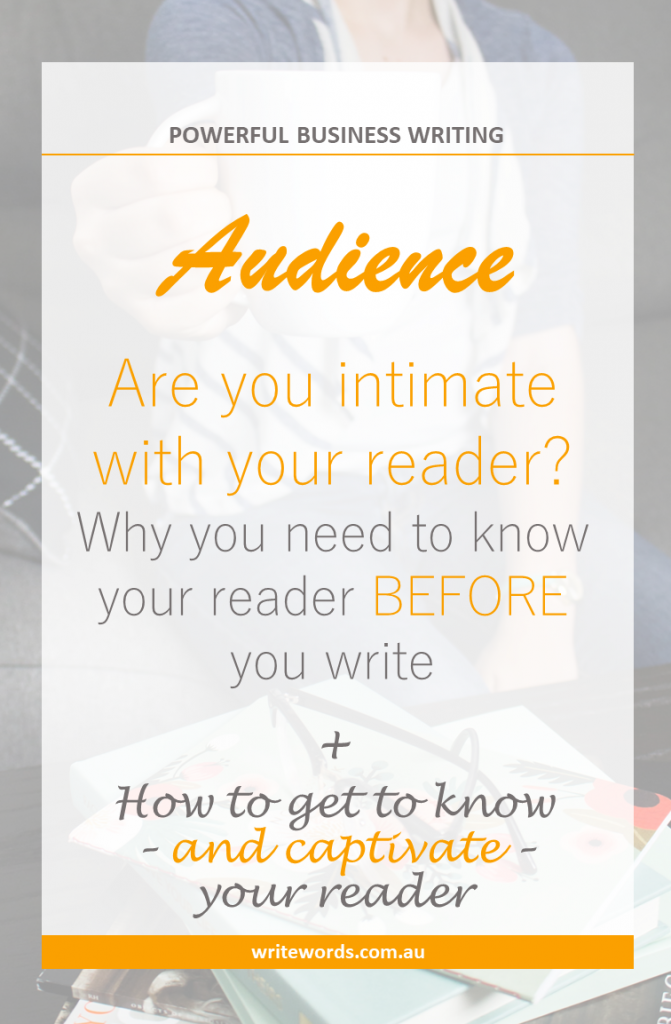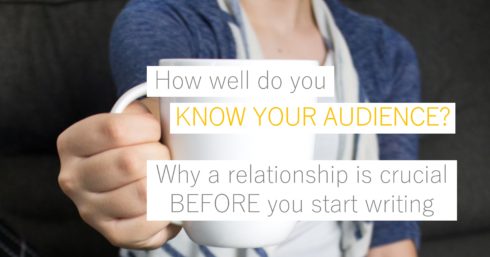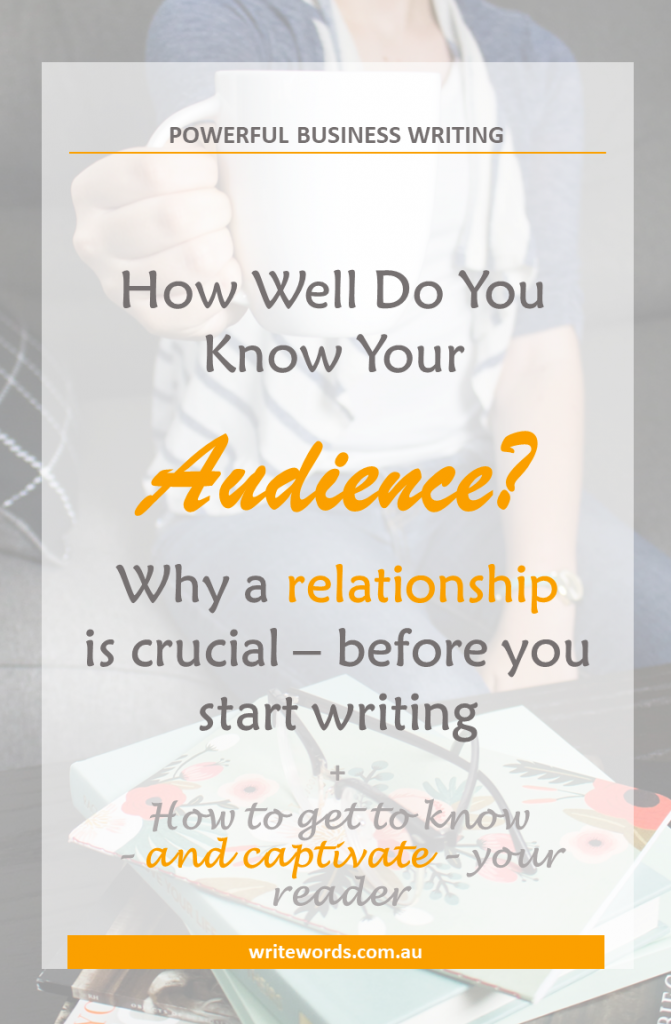Get to know your audience
Why you need to know your reader before you write
Don’t start typing just yet!

Have you identified your audience – the person or people who’ll be reading your piece of communication? And how well do you know them?
It doesn’t matter whether it’s an email to motivate your staff, an academic essay, a letter of apology or an ad showing off your record sales, knowing your audience is crucial each time you write.
First, who is your reader?
- A colleague
- Clients
- Potential clients
- A friend
- A manager
- Staff
- A supplier
If your audience comprises many readers, it can be effective to imagine that you’re writing for only one person – this makes it easier to get your head around who exactly this person might be. While you don’t need to know them ‘intimately’, it does help to know their approximate age, location, profession, income, level of education and anything else that might be relevant to your writing objective.
Write with more confidence with 3 simple tricks.
WATCH NOW!
Why?
Your audience shapes what you write and how you write it.
What you write
What does your reader know, and what do they need to know? Knowing your reader will help determine how much and which information to include.
For example, the amount of background information you include in an email update to your immediate boss would likely be far less than a briefing for the marketing manager. Or a blog readership interested in ‘digital marketing for ad agencies’ versus ‘marketing 101 for small business’.
We know less is often more, so aim to include just the right amount of information – not too much background, but enough to make sure your reader is informed and knows what to do next.
How will your reader benefit?
Knowing your reader also helps you tailor your message directly to your reader – and make them feel like they will benefit from your offering or whatever you’re telling them about. You let them know how you can help.
For example, if you’re selling organic skincare, your reader wants to know how your product will make their skin glow, not so much about the actual product or the business’s values (although this can be interesting secondary information).
How you write
Your language – the words you use – depends on who you’re writing for, why you’re writing it (objective), and how it will be read (email, blog, essay, sales letter).
Will your reader be sensitive to the issue you’re writing about?
Will they understand any technical language or jargon?
Is your reader older and expecting a more formal tone? Or are you looking to make an impact on a Millennial readership on your blog?
Before committing to a particular style, be sure your reader won’t:
- be offended by the tone you’re taking
- be excluded because they don’t know what your technical terms mean, or
- become bored because you’ve included too much info.
Use a tone you know will appeal to your audience.
Example
Think about how you’d write an email to your team (or a friend) about the launch of the new website. You might mention it’s a big improvement (eg, no more typos or getting lost in the maze of information), where they need to direct existing clients and that they should send every potential client to the new site. It might be motivational, even a little light-hearted.
Next, think about how you’d write the email to your existing or prospective clients. It’s likely the two emails would completely differ in terms of tone and how you structure them. The second version may be more formal and cover how to get the most out of the website – this is, of course, dependent on who your reader is.
Receive more writing tips – free into your inbox. Sign me up!
How to get to know – and captivate – your audience
Learn about your reader
Here are a few questions to ask yourself – and, if feasible, your reader.
- Background: It could be relevant to learn about your reader’s demographics so you can tailor your language and content towards their preferences. You could find out their age, location, profession, income, level of education. This will help you tailor language and content that benefits your reader.
- Wants: Clarify what your audience wants – use a survey, write an email, pick up the phone. It doesn’t matter whether it’s your blog readership, CEO or commanding officer, asking intelligent questions not only keeps your name or brand top of mind, it shows you really are interested in providing the best information or solution possible. You can then craft a message focused on the benefits of using your idea, product or service.
- Needs: What do they value? What do they already know? What is most important to them, and what isn’t.
Captivate your reader
Once you know and understand your audience, you can craft a message that not only has impact, but makes the reader feel it has been written especially for them.
Speak to them
To engage your reader, you need to connect with them. Which means you need to speak to them. You’re writing for your reader’s benefit. So let them know that. Speak to them with language you know they’ll relate to. If you want to sound chatty, try using contractions – this probably isn’t a good idea if your reader is elderly or conservative.
What do they know?
Refer to things you know your reader knows. For example, that without their expertise, sales could drop even further; the problematic marketing strategy could be rectified with X, Y, Z; or acknowledge a problem or their interest in a particular topic on your blog or Facebook page.
How will they benefit?
Let your reader know they can benefit from your expertise. Tell them how accepting your proposal will improve productivity or how profits will increase when they accept your recommendation to scrap the stalled project. This leads in to that all-important aspect of writing: the benefit – which we’ll look at another time.
For now though, slip into your reader’s shoes, and give them what they need and want.
Questions? Thoughts? Scroll down and leave a comment!
Improve your writing instantly with 3 simple tricks – FREE VIDEO TRAINING
Watch now!
Other articles you might like
- Cut the clutter – how to write in fewer words
- How to write with impact and captivate your readers
- The power of simplicity
- Confusing words, and how to avoid getting them wrong
Share the love!
Like this writing tip? Share it with your friends and colleagues.


